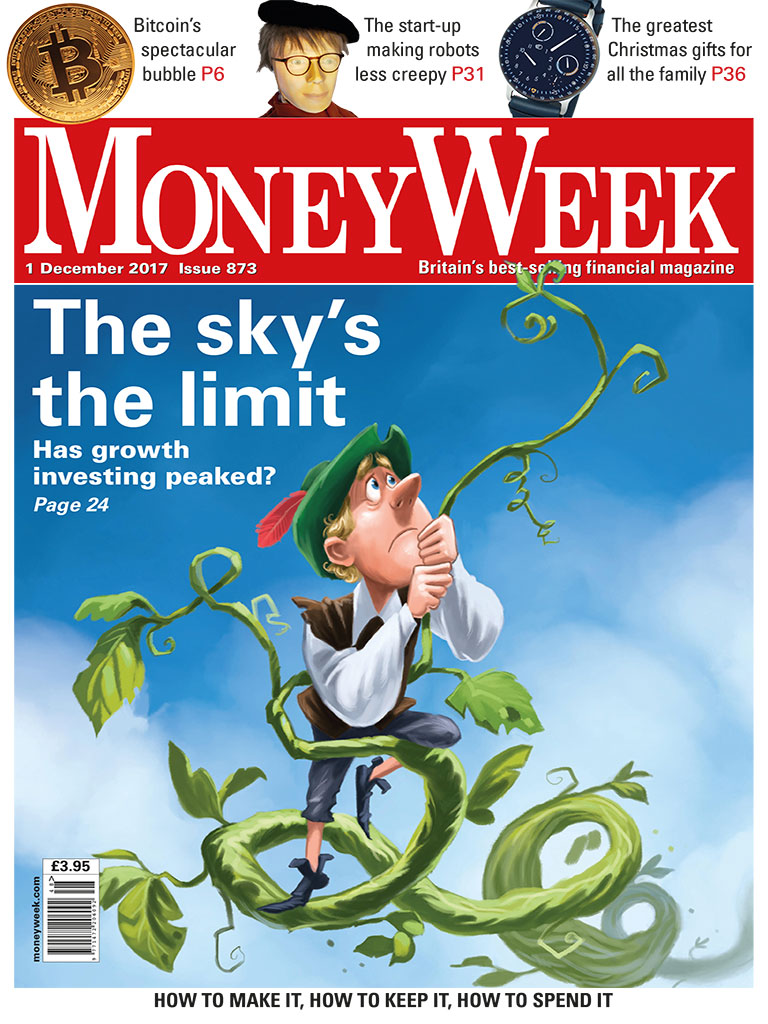EU turns the spotlight on the spread-betting sector
In December the UK financial watchdog, the FCA, published draft proposals on how spread betting should be regulated. Now the EU has stepped in too.

Get the latest financial news, insights and expert analysis from our award-winning MoneyWeek team, to help you understand what really matters when it comes to your finances.
You are now subscribed
Your newsletter sign-up was successful
Want to add more newsletters?

Twice daily
MoneyWeek
Get the latest financial news, insights and expert analysis from our award-winning MoneyWeek team, to help you understand what really matters when it comes to your finances.

Four times a week
Look After My Bills
Sign up to our free money-saving newsletter, filled with the latest news and expert advice to help you find the best tips and deals for managing your bills. Start saving today!
In December the UK financial watchdog the Financial Conduct Authority (FCA) published draft proposals on howspread betting should be regulated. In principle there's a good case for limits on leverage, changes to the marketing of such products, and even an end to certain products, such as short-term binaries. But it's also fair to say there is a market for products that allow private investors to trade easily, whereas the FCA's report rather gave the impression that it doesn't like spread betting at all which is why the share price of providers such as IG Group slid in the wake of the report.
The final report was expected in a few weeks from now. But that's been delayed because the pan-European regulator, the European Securities and Markets Authority (ESMA), has now stepped in, with the idea of publishing its own regulations, which it expects to be put in place by the start of next year. However, the FCA has hinted that if Brussels ends up being delayed for any reason it may still go ahead and issue its own regulations. So what might this mean for traders?
The optimistic view is that ESMA will copy German regulators, and focus on limiting a punter's risk to the funds they have in their account (ie, no negative balances), rather than introduce a raft of micro-managing regulations. UK providers have praised this approach and in fact CMC said it was still considering establishing a hub in Germany if the FCA went for a more draconian option. Yet ESMA could end up being even stricter than the FCA. For example, France prevents firms from advertising spread-betting products, and Belgium bans them entirely. Even if Brussels doesn't go that far, tighter regulation would make it harder for firms to argue that overzealous laws will force them from the UK. For its own part, ESMA's website states that it will consider "a number of measures" including "leverage limits, guaranteed limits on client losses, and/or restrictions on the marketing and distribution of these products".
MoneyWeek
Subscribe to MoneyWeek today and get your first six magazine issues absolutely FREE

Sign up to Money Morning
Don't miss the latest investment and personal finances news, market analysis, plus money-saving tips with our free twice-daily newsletter
Don't miss the latest investment and personal finances news, market analysis, plus money-saving tips with our free twice-daily newsletter
We'll discuss these proposals in more depth with a focus on how this might affect our long position in IG Group (see column) in the coming weeks. But it doesn't look good for either the spread-betting providers or the punters who responsibly enjoy using their services.
Five ways to regulate spread betting
While we think that the FCA's proposals to tighten regulation on spread betting are overly restrictive, we also think that some change is necessary. Here's what we'd like to see.
1. Limited-risk accounts
Many of the worst stories about spread betting involve individuals running up hefty debts from positions that go against them. The solution is to make limited risk accounts that don't allow negative balances (ie, you can't lose more than the money you actually have sitting in your account) mandatory, or at least to have them as the default option. This would greatly reduce the need for more regulation in other areas.
2. Guaranteed stops
Most investors don't realise that stop-losses aren't always guaranteed, especially during periods of volatility. Forcing firms to do more to bring this to the attention of investors is vital. However, imposing stop-losses (or the FCA's idea of automatically closing positions once a certain amount of the initial capital has been lost) is too restrictive.
3. Reasonable leverage limits
Leverage (betting with borrowed money) multiplies both gains and losses. However, a certain amount of leverage is needed to make spread betting worthwhile, especially if limited risk accounts become the default option. A single limit of 50:1 for all markets, and all types of investors, would be much simpler than the FCA's proposals to restrict leverage to as little as 5:1 in certain cases.
4. More sensible marketing
Firms should make it much clearer that spread betting is risky, that many (in fact, most) people lose money, and it is not a substitute for long-term investments such as pensions or individual savings accounts.
5. Crackdown on binaries
Spread betting is high risk, but because of their limited duration, binaries are the closest to pure gambling. They also tend to attract scammers. A ban on binary bets of less than two hours in duration (or even longer) would be sensible. Indeed, if the FCA simply implemented this proposal along with limited-risk accounts, it would address most of the problems without requiring further changes a win-win for all involved.
How our tips have done
We currently have seven open positions, six longs and one short. Three of the longs (gold, John Laing and Petrobras) are in the black, with John Laing (issue 836) showing a profit of £158 and gold (issue 832) still £147 ahead. With ambitious plans for overseas diversification, and a forward price/earnings ratio of less than seven, I'm more than happy to let my profits on John Laing continue to run. I also remain bullish on gold, though less so than I was earlier this year.
The bad news is that the remaining longs (Virgin Money, IG Group and M&B) are all losing money, with IG now in negative territory. I have confidence in both the M&B and Virgin Money bets, so I'll keep those positions open. However, I will consider whether it is worth sticking with IG, in light of the developments discussed in the main article on the left. Either way, I will announce my decision in a fortnight's time.
The share price of Ocado (issue 249), my one short position, has slipped a little, although the trade is still £164 in the red. Yet I'm confident that Ocado will end up falling in price due to its sky-high valuation, as well as competition from supermarkets investing in their own online services. I'm also extremely sceptical about its plans to expand overseas, so this is a short position I anticipate holding for a substantial period.
Overall, my longs are £62 ahead, while my short trade is £164 behind, leaving me in the red overall. Hopefully, this will improve over the next few weeks. In any case, as I pointed out in the last update, the losses on the open trades are so far more than compensated for by the large profit I banked on the CAC 40 trade.
Get the latest financial news, insights and expert analysis from our award-winning MoneyWeek team, to help you understand what really matters when it comes to your finances.

-
 Should you buy an active ETF?
Should you buy an active ETF?ETFs are often mischaracterised as passive products, but they can be a convenient way to add active management to your portfolio
-
 Power up your pension before 5 April – easy ways to save before the tax year end
Power up your pension before 5 April – easy ways to save before the tax year endWith the end of the tax year looming, pension savers currently have a window to review and maximise what’s going into their retirement funds – we look at how
-
 Nationwide fined £44 million over “inadequate” anti-money laundering systems
Nationwide fined £44 million over “inadequate” anti-money laundering systemsFailings in Nationwide’s financial crime processes between October 2016 to July 2021 meant one criminal was able to deposit £26 million from fraudulent Covid furlough payments in just eight days.
-
 FCA tells banks to speed up savings rate increases
FCA tells banks to speed up savings rate increasesRecord profits and low savings rates spurred the FCA to meet with some of the UK’s top banks.
-
 A wage-price spiral is stirring in the UK – what does that mean for your money?
A wage-price spiral is stirring in the UK – what does that mean for your money?Analysis The cost of living is rising – and wages aren't keeping up. But with workers having more power than they’ve had in a long time, they're demanding more – and they may well get it. John Stepek explains what's going on.
-
 Complaining to the Financial Ombudsman to be made easier for SMEs
Complaining to the Financial Ombudsman to be made easier for SMEsFeatures Over 200,000 more small businesses will soon be able to make use of the Financial Ombudsman Service, says David Prosser.
-
 Britain’s national debt timebomb
Britain’s national debt timebombFeatures Worrywarts are concerned about household debt. They’re fretting about the wrong thing. Despite austerity, the welfare bill continues to soar, says James Ferguson of the Macrostrategy Partnership.